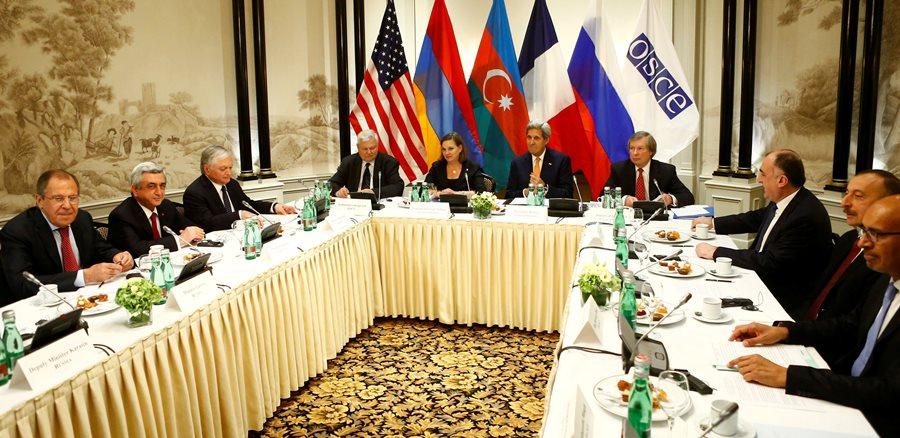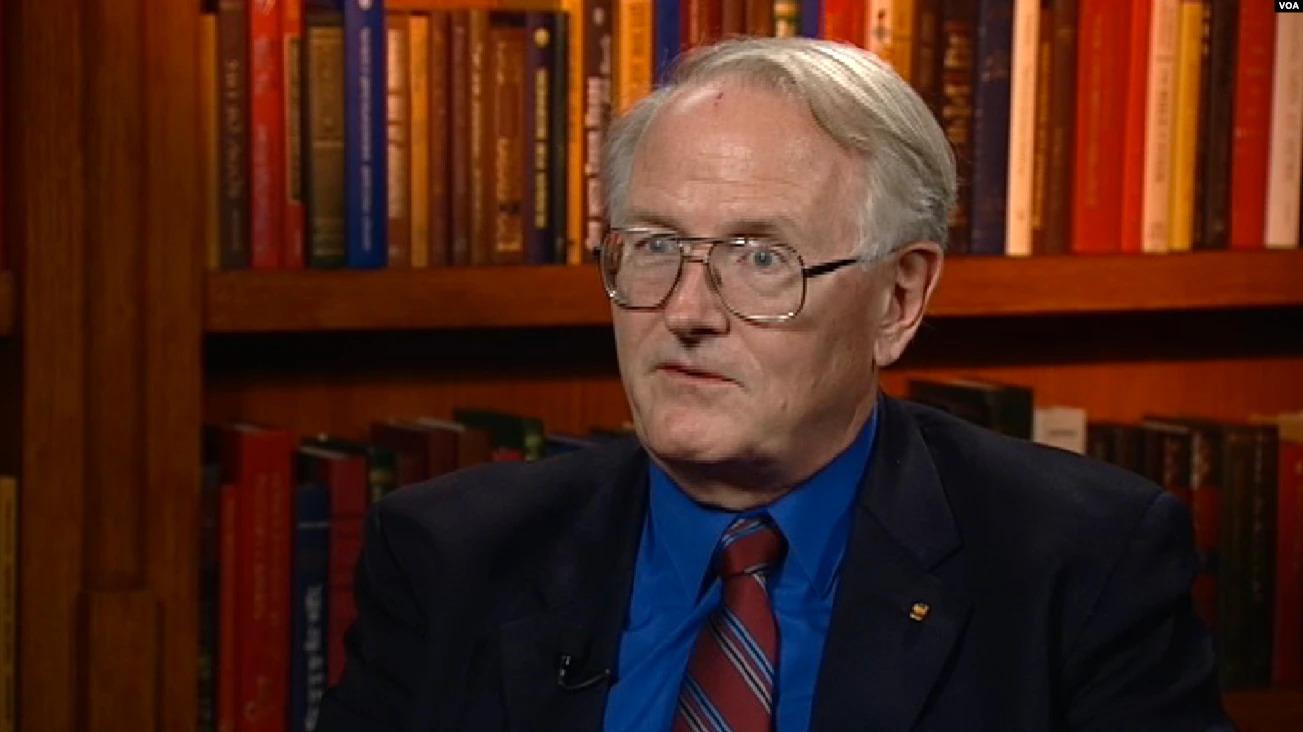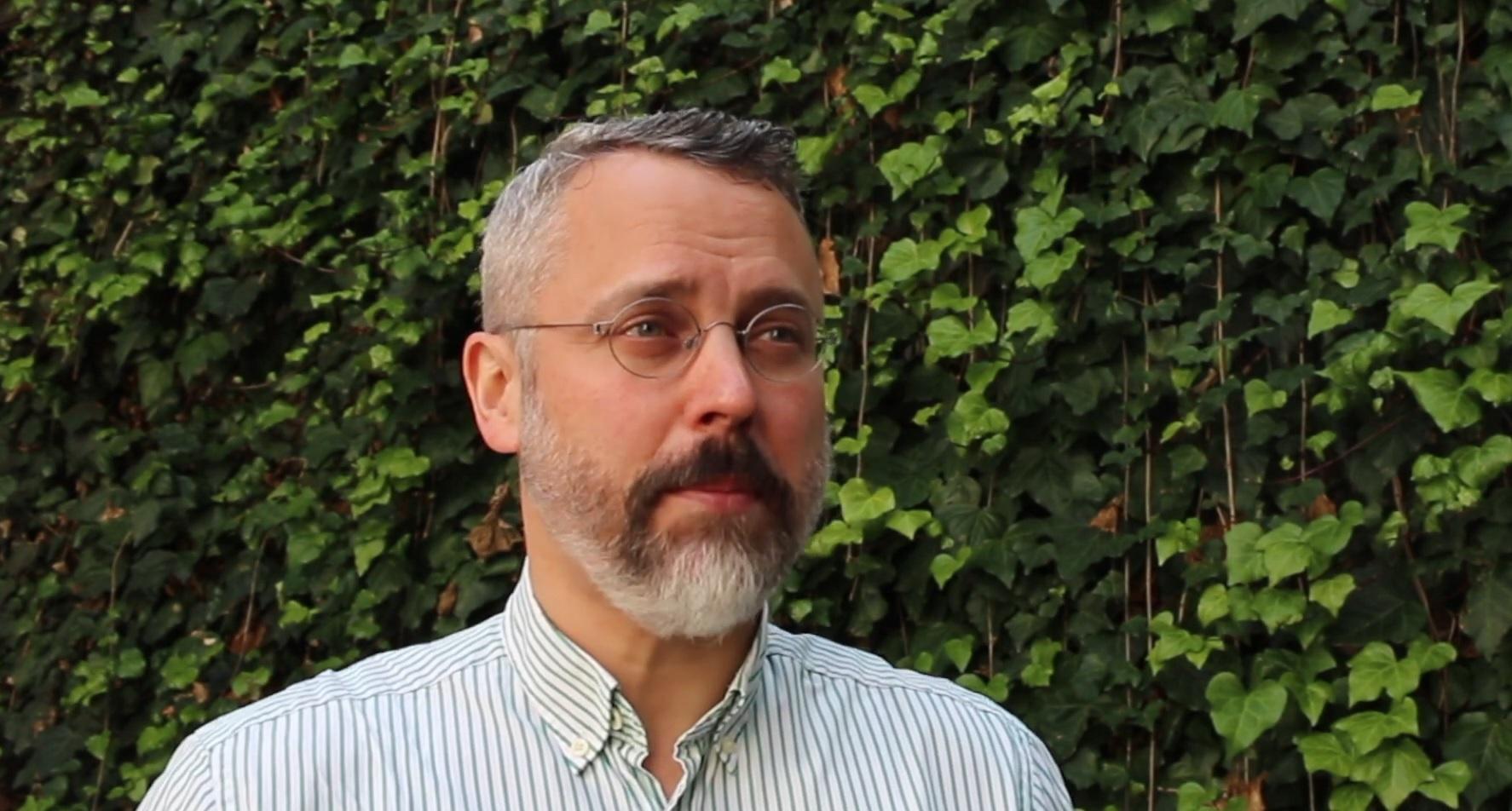OSCE Minsk Group: Anatomy of inglorious death
Beyond point of no return
ANALYTICS 08 July 2022 - 17:20
| Orkhan Amashov Caliber.Az |
The inflexible and gruesome truth about the OSCE Minsk Group is that it is dying a long death, and its throes are protracted. Given the situation on the ground, all the principles and constructs elaborated under its auspices cannot be evoked and the entity itself has become the acme of insipid vacuity.
The OSCE Minsk Group has already reached the point subsequent to which “gradations of its passing away” are of no practical import. Save for the pseudo-defiant Armenian officials and some incorrigible apologists, no one talks about it in the real present sense, and rightly so.
However, there is also a question of procedural niceties that are somewhat shrouded in obscurity. It behoves a fair-minded discerning observer, not given to wishful thinking, to acknowledge that the organisation in question does still exist on paper.
The author of this piece has conscientiously and consistently referred to it as "misbegotten", "beleaguered", "obsolete", "archaic", "bankrupt", "inert", "impotent" or even "clinically dead", but the appellatives have always fallen short of an ultimate verdict tantamount to an irreversible death warrant.
Two separate questions appear to be in need of clarification. The first is why its name crops up from time to time and what constitutes a very final and formal ‘no return’ moment that would have enabled the world at large to cut loose from being in two minds. Answers to these form two sides of one coin.

The OSCE Minsk Group and the question of the final status of the former Nagorno-Karabakh have always been interconnected, for the latter was the raison d’être of the former. The Second Karabakh War delivered a near-death blow to both. Thereafter, Azerbaijan has consistently refused to talk about the territorial status of the region, and suggested that the OSCE Minsk Group should redefine its mandate to remain relevant, which it has not.
Once Armenia officially agrees to discuss the Karabakh subject exclusively in terms of the rights and security of the Armenian population of the region inside Azerbaijan, denuded of a territorial status component, the Minsk Group will self-destruct or will be dissolved by its creator – the OSCE.
Prior to the 44-day war, the OSCE Minsk Group had been brain-dead, Azerbaijan’s victory in 2020 rendered it irrelevant, as it was deprived of its raison d'être – addressing the final status of the former Nagorno-Karabakh Autonomous Oblast; now, in the aftermath of the inception of the Ukrainian crisis and schism it has engendered between the West and Russia, it cannot perform a group activity, but it is still somewhat alive, at least, de jure.
In practical terms, the OSCE Minsk Group became an indispensable device in the hands of those who either wanted to eternalise the conflict and ensure its duration in perpetuity or eventually compel Azerbaijan to the fact of the occupation and yield to the territorial loss.
President Ilham Aliyev’s grim evaluation of the organisation’s 28-year-old endeavours explains only too well why Baku would not touch with a bargepole any suggestion on its remote involvement in the future peace process.

When I asked Paul Goble, former advisor to the US Secretary of State, “what should happen for the Minsk Group to be consigned to history”, he wisely reminded me that the last meeting of the League of Nations was convened in 1946, long after it ceased to perform any real function. In other words, an international organisation may continue to claim to be in existence long after its practical end.
In April, after Russian Foreign Minister Sergei Lavrov’s admission that the OSCE Minsk Group had been effectively cancelled by the West, namely the US and France, many wondered whether its death was "finally final".
The feeling back then was that this should be considered as a clinical death warrant, if not more. However, in a strict legal sense, the entity in question was still alive and would continue to be formally in existence until the point of self-dissolution or a coup de grâce of some sort.
Today, the situation is slightly different, as it is of lesser import whether the OSCE Minsk Group has been de jure abandoned or not. What matters today is the extent to which Yerevan is prepared to move from “the thinking along the lines of the territorial status” to "the security and rights of Armenians inside Azerbaijan".
Pashinyan has vacillated on this from December 2021 onwards. Paul Goble, for instance, is of the opinion that “what the Armenian Prime Minister says occasionally is welcome, but he does not have a sufficient amount of strength” to take practical steps.
Today’s Azerbaijani-Armenian peace process, both within the Moscow and Brussels formats, does not touch upon the status issue. The interstate normalisation facilitates two separate realms - the demarcation of the delimitation of the state border and the unblocking of communications. It is possible to achieve some progress in both of these dimensions, whilst leaving the issues related to the Armenian inhabitants of Karabakh aside for the time being.
Some commentators believe that, before the 2020 war, the OSCE Minsk Group was in a privileged position to mediate the conflict, but now the whole discourse has been fragmented.

Laurence Broers of London-based Conciliation Resources contends that there are three separate tracks, namely (i) the Moscow-mediated process with a heavy focus on security, due to the Russian peacekeepers’ presence in Karabakh, (ii) the Brussels-led line concentrating on technical-economic matters, and (iii) the OSCE Minsk Group dealing with the old final status issue.
The reality is that Baku has masterfully, by virtue of its victory, not just downgraded the status issue in the pegging order, but removed it from the contemporary agenda, shifting the whole discussion into the interstate domain.
Paul Goble agreed with me on this, but also stated that the question of the status of the Armenian community inside Azerbaijan will resurface periodically, and whenever this happens, people will think of the OSCE Minsk Group, as it was the only entity prepared to talk about that very issue.
As to the comparative merits of the Brussels and Moscow formats, he articulated a very interesting and punchy formula: the participation of the EU is welcome, but is not determinative, whereas the participation of Moscow is inevitable, but will be less determinative.
However much Azerbaijan and Armenia may exclusively focus on interstate issues for some time, a peace treaty will require the Armenian recognition of Azerbaijani territorial integrity with Karabakh included and Baku will be expected to guarantee the security and rights of those unfortunate Armenians residing in the region. Failure to achieve progress there could give rise to all sorts of possibilities, including a new stalemate and even a renewed widescale escalation, which would be detrimental to all.
Caliber.Az
|
1
|
20 points. What did Armenia, the EU and the US agree on in Brussels? Sensational details on Caliber.Az
17 April 2024 - 11:01
|
|
2
|
Caliber.Az to reveal sensational details of "Brussels meeting" Important announcement
16 April 2024 - 12:09
|
|
3
|
Iran seeks international backing following missile strikes on Israel Raisi calls Russia & Qatari leaders amid tension
17 April 2024 - 16:56
|
|
4
|
Serbian President seeks Azerbaijani support amid Western pressures Insights from Political Scientist Stevan Gajić
17 April 2024 - 13:10
|
|
5
|
French ambassador recalled from Azerbaijan amidst bilateral strain Macron admits defeat
17 April 2024 - 15:19
|
Luxury bargain hunters head to Japan as weak Yen brings big discounts
19 April 2024 - 05:04
Two countries in Europe powered by 100% renewable energy as wind capacity soars
19 April 2024 - 03:05
Farewell to metals in industry forever
19 April 2024 - 01:03
Poland to join European Sky Shield scheme, following thaw with Berlin
18 April 2024 - 23:00
UN chief sees risk of full-scale conflict in Middle East
18 April 2024 - 21:16
Azerbaijan, Austria discuss areas of potential cooperation
PHOTO18 April 2024 - 21:04
Azerbaijan discusses partnership opportunities with CICA at COP29
PHOTO18 April 2024 - 20:53
Russian Army deploys new version of BM-27 Uragan MLRS Rocket Launcher in Ukraine
18 April 2024 - 20:40
Europe moves forward with major hydrogen projects
18 April 2024 - 20:27
US, Britain issue new sanctions on Iran in response to Tehran's attack on Israel
18 April 2024 - 20:13
Türkiye's Togg starts working on new B-SUV model
18 April 2024 - 19:59
US commends Azerbaijani deminers, pledges support for complete demining of lands
18 April 2024 - 19:46
Georgian opposition announces “full mobilization”
18 April 2024 - 19:32
Azerbaijan, Austria discuss implementation of joint industrial projects
18 April 2024 - 19:18
Israeli forces withdraw from area of Nuseirat refugee camp in central Gaza
18 April 2024 - 19:04
Azerbaijani parliament speaker: France eyes to continue colonialism policy in South Caucasus
18 April 2024 - 18:49
Iran warns it knows where Israel's nuclear sites
"Our hands - on trigger"18 April 2024 - 18:34
Congress Committee’s rep: New Caledonia expresses gratitude to Azerbaijan
18 April 2024 - 18:19
Historian: France trying to destroy culture of Kanak people
18 April 2024 - 18:04
Iran oil exports hit six-year high as West prepares sanctions
18 April 2024 - 17:49
Russia, Azerbaijan announce withdrawal of peacekeepers from Karabakh
Signaling a new phase in post-conflict dynamics18 April 2024 - 17:46
What to expect from Russia’s withdrawal from Karabakh?
Looking for new horizons18 April 2024 - 17:41
Baku Initiative Group: Azerbaijan fighting against colonialism, neo-colonialism
18 April 2024 - 17:34
Azerbaijan holding conference with New Caledonian Congress reps
18 April 2024 - 17:19
Lies and provocation of Iran's ambassador to Armenia
We have something to remind him18 April 2024 - 17:13
Miscalculation leads to escalation in clash between Israel, Iran
18 April 2024 - 17:04
EU's rep voices grave concerns over escalating tensions between Israel, Iran
18 April 2024 - 16:49
India kicks out Türkiye from Navy’s shipping project
18 April 2024 - 16:34
Azerbaijani ambassador: Armenia uses fake information as evidence in public court hearings
18 April 2024 - 16:19
Azerbaijani police officers find weapons, ammunition in Zangilan
PHOTO18 April 2024 - 16:04
Azerbaijani, New Caledonian parliaments sign memorandum of cooperation
18 April 2024 - 15:49
MFA: Russia exerts many efforts to resolve Azerbaijan-Armenia relations
18 April 2024 - 15:34
A blow-by-blow fact
Russian peacekeepers' mission accomplished18 April 2024 - 15:12
Azerbaijani energy minister invited to US for UN General Assembly discussions
18 April 2024 - 15:03
Baku Initiative Group facilitates Azerbaijan-New Caledonia cooperation
Congress chair applauds efforts18 April 2024 - 14:49
Azerbaijan to take steps to deal with Armenian vandalism at Khudavang Monastery
18 April 2024 - 14:35
"Green" ambitions: Azerbaijan's push for hydrogen production
Caliber.Az review18 April 2024 - 14:31
SpaceX launches 23 Starlink satellites from Florida
18 April 2024 - 14:21
Bashlibel tragedy survivors manage to break out of Armenian army siege only after 113 days
18 April 2024 - 14:16
Caliber.Az investigation raises dissatisfaction of US State Department
Facts are stubborn things18 April 2024 - 14:12
